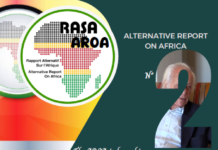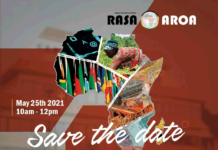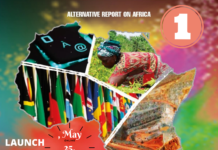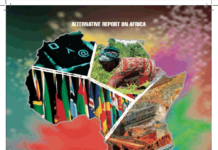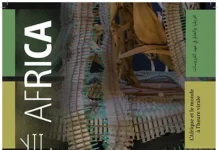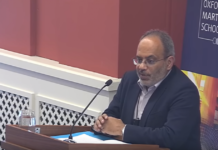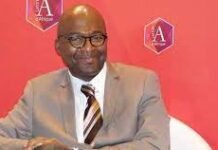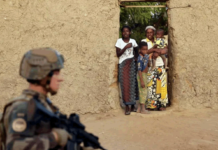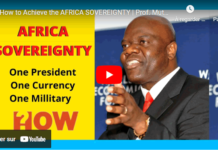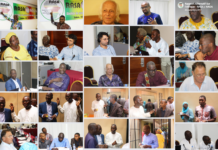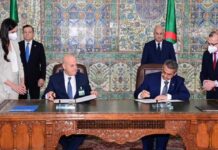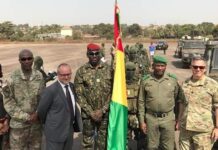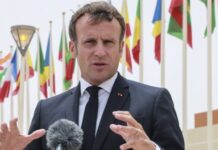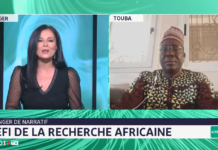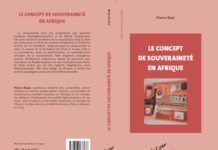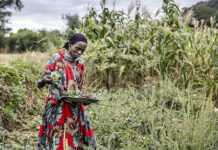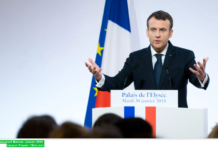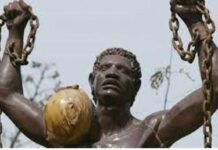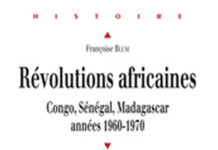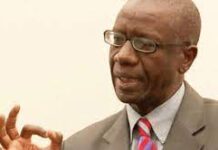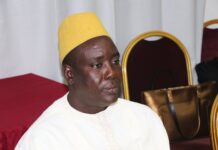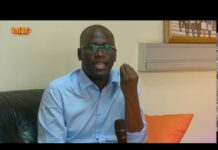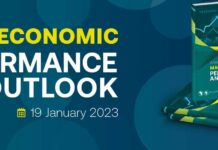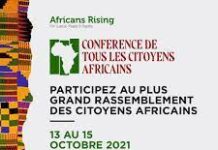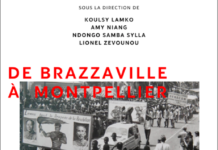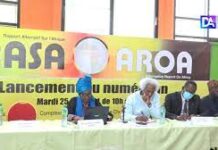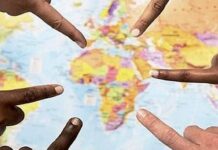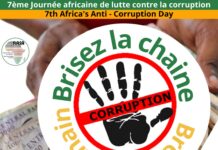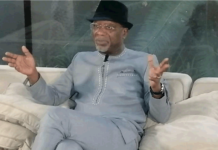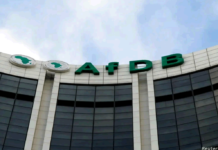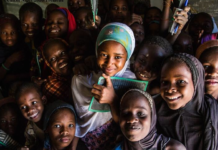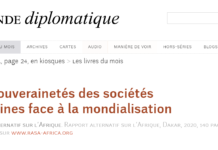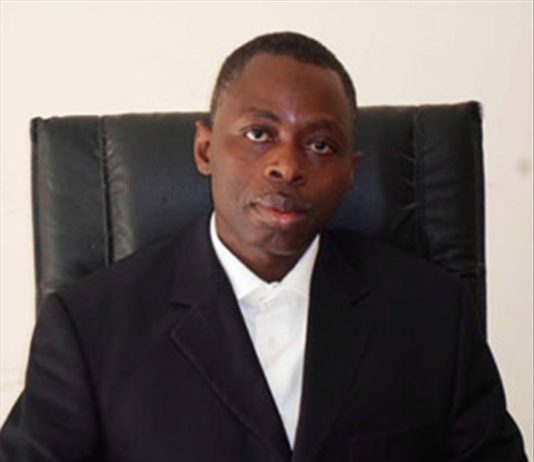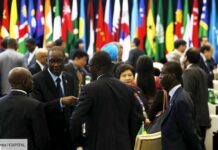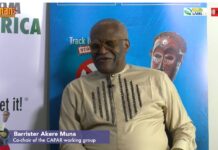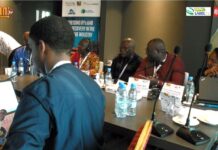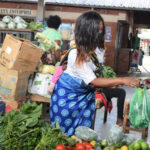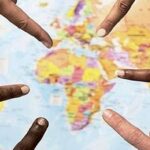November 2019
The transformations expected from the Sustainable Development Goals (SDGs) will be difficult to achieve without the appropriation of the agenda by the communities, » maintains Moussa Mbaye. The Executive Secretary of Enda Third World is also convinced that to fight against poverty, it is imperative to change the modes of production that produce structural inequalities. » Can you tell us about the project « Strengthening the role and place of civil societies in the South in a transformative 2030 agenda »?supported by the European Union and executed by Enda Tiers-Monde? It is an action that takes place in the framework of a strategic partnership signed between the international network Enda Tiers-Monde and the European Union Commission. It is engaged with 25 international networks of civil societies that have been selected for this strategic partnership. It is about working to make the sustainable development agenda an instrument of social transformation. It has been demonstrated that the role and place of civil society are important, if not decisive, insofar as this agenda should not be only the business of States, followed by experts and translated by technical interventions in the country. On the contrary, the agenda must involve all citizens in order to achieve the expected changes. Civil society must be at the forefront otherwise we will remain at the stage of a slogan or a project that concerns only experts or technicians. In 2016, we signed a strategic partnership with the EU to accompany and support the Strategic Plan of the Enda Third World international network. Hence the launch of the project entitled: « Strengthening the role and place of civil societies in the South in a transformative 2030 agenda ».Concretely we have identified the mechanisms for this project to become a reality by drawing lessons from the past. The key word for this agenda is ownership. We have learned from previous commitments, notably the Millennium Development Goals (MDGs), whose development and institutional design were not very participatory. In fact, these goals are not well known by the populations at the grassroots level and by the actors in charge of bringing about change in a commune, a neighborhood or a sector. One of the essential elements that Enda works on to strengthen the capacities of civil society is to ensure that it appropriates the philosophy and criteria of sustainable development and has its own understanding of them. We work with 20 Enda entities across three continents. Many of these entities are based in Senegal. The concept and approach of sustainable development must be domesticated. I must also say that for the MDGs, contractualization or the social contract was missing… Change is a necessary step towards sustainable development… Sustainable development is a paradigm shift for the citizen, the industrialist, the administrator and the local elected official. We must change the way we produce wealth or develop. This change cannot be made without shaking up existing practices and habits. So there will be, at some point, winners and losers. For this to be possible, we need to agree within society on what each person must do to make these actions possible. For the MDGs, there were defined goals, programs, and projects where those who implemented them were mostly accountable for the funding that the primary beneficiaries and citizens received.Such an approach will significantly restrict or defeat the sustainable development agenda and the development goals. In the implementation of this project, we are putting forward sustainable development contracts between actors of a territory, of a sector. They should agree on their own definition of sustainable development. The other level is the integration of all this in the development plans on a local or international scale. In a concrete way, we work with the populations and Enda’s partners to define, in their own life situation, what sustainable development is. We are working on the appropriation of sustainable development so that it does not fall victim to the elitist approach which would be synonymous with failure. The project started a few years ago. What is your assessment of its implementation? We are already 4 years after the signing of this agenda of the Sustainable Development Goals. But the transformations are struggling to take place because we remain in a compartmentalized approach, objective by objective. The communities should feel more concerned. We must recognize that compared to the MDGs, there is a greater participation of civil society in the elaboration, and many more spaces of participation from the institutional point of view in the countries as well as at the level of the United Nations with their political forum in which we participated this year. To take stock, it is this ingredient that is missing for what is defined as change to happen. There is not yet the desired level of ownership and involvement of the populations. In addition, there is a lack of transversality. Their approaches to projects do not correspond to the requirements of sustainable development. This requires a complex approach. Today we cannot think of the fight against poverty without thinking at the same time about the preservation of the environment, nor about economic development or industrialization. To fight against poverty, it is not only a question of giving infusions to communities, but it is necessary to transform a system, the modes of production that produce inequalities in a structural way. To achieve this, the company must change its paradigm. It must break with the abusive exploitation of natural resources, especially the impact that this exploitation could have on ecosystems, on vulnerable groups, and even on production systems. Citizens must change their behavior because certain consumption habits aggravate our problems related to pollution and waste. The same is true for states and institutions in terms of governance. So, this new paradigm has no chance of prospering if we adopt only the technical approach. It is in our daily lives that each of us must make this adjustment in order to have a more liveable planet, to safeguard what we have and to ensure peace and security. These changes are indispensable at the individual, collective and institutional levels, otherwise we will face the same problems in 2030. Is there any chance that African countries will achieve these SDGs? The hope is there insofar as there is this awareness that must be transformed to avoid finding ourselves in a dead end. For the countries of the South, the difficult situation must be able to create a trigger. Today, with this awareness, especially among the youth, we believe we are in a position to make this transformation, even if it is not obvious. There is a need to invest massively in awareness raising and communication so that everyone understands what is at stake and what adjustments need to be made. The situation is not easy. Every day we see inequalities develop and we see how we get bogged down in populist approaches that threaten peace and security in the world. But with optimism, we say to ourselves that this is also an opportunity for people to realize the need for this reform on an individual and collective level. This is the fight that Enda has been leading on a daily basis for the past 45 years. Are African countries not confronted with financial constraints for the implementation of the MDGs? Before the adoption of the 2030 Agenda, an international meeting was held in Addis Ababa on development financing. We need to find ways to deal with this by better mobilizing resources in the countries of the South. The paradox is that in these countries, including Senegal, there is the greatest wealth in terms of natural resources. Taking into account the asymmetry of relations at the international level and the hegemony of certain countries, we gain much more autonomy to manage our affairs by putting our resources and acting where we need to. The agenda is not only development goals, but above all principles. One of those principles is « Leave no one behind. But in order to do this, we need resources, which brings us back to an essential dimension of sustainable development, namely governance. How to have a governance of our resources that ensures that the essential rights of the populations and citizens are guaranteed. This will not happen overnight. There is a need to ensure that each year we see progress. The question of resources is as important as citizenship. Citizens must be demanding of government. Even if we are not in the most favorable position, we have our cards to play in today’s world to awaken this citizenship, so that there is a democratic governance framework. Can we say that Senegal is on the right track for the respect of the Odd agenda? Senegal is fortunate to have stability, flexible and adaptable human resources. We also have natural resources that allow us to be on the right track. Now it all depends on how this strategic vision will be created, which comes out of the political whole to which the economic, cultural and religious actors will adhere so that we can get out of it. We have noticed for several years that we remain in a political context where consensus is shattered. And we do not have the environment of a strategic alliance at the national level to allow us to position ourselves beyond partisan aspects. Senegal has real chances. But we are experiencing deadlocks in the political and social dialogue, while time is running out. This will depend on how leaders can create this strategic vision shared by civil society, the private sector and other segments of the population. Enda is one of the oldest civil society organizations in Senegal. Today, do you have new orientations in relation to the new challenges? Enda was born in 1972 with the very idea of sustainable development. We used to talk about eco-development. In reality, we can only have prosperity if we take into account both the preservation of the environment and social justice in the development process. Enda has always worked to ensure that the participation of the populations is not just a slogan, but a reality. As Joseph Ki-Zerbo said: « We do not develop, we develop ». Enda works to build alternatives that allow Senegalese populations and the most disadvantaged groups to understand the stakes and to take their destiny in hand in order to find their own path to development. Today we have launched, with other African institutions, an important initiative called the Alternative Report on Africa. The objective, the diagnosis and the projections on Africa must be made by Africans and not others. We are working in Senegal and in 12 other African countries on this report which will allow us to make a diagnosis of the transformations and which can lead to a common projection. We are also working with the 20 entities of the network on health policies, land security, local content (i.e. how to make extractive industries benefit communities), and especially on the resilience of populations to climate change, by calling on their knowledge as well as scientific knowledge. In this context, we have a partnership with the research structures of the Cheikh Anta Diop University of Dakar. We must put knowledge, the key element of development and transformation, at the service of communities. We play this role of driving change and alternatives on all the key issues of our society. That is why on the 17 Sustainable Development Goals (SDGs), you will always find several entities of Enda working with the populations, local elected officials and international institutions, to see how we can reform governance and strategic vision on these areas.Interview conducted by Idrissa Sané (Le Soleil newspaper)
*Executive Secretary of ENDA Third World
67Cherif Salif SY, DrCheikh Guèye et 65 autres personnes9 commentaires39 partagesJ’aimeCommenterPartager


